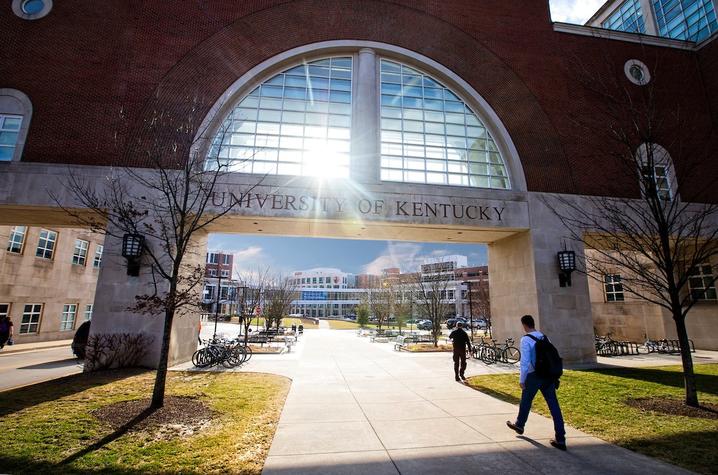How We Thrive as Technology Forges a New Future

The following op-ed appeared in several regional newspapers.
University of Kentucky students are graduating during the largest economic disruption since the Industrial Revolution. Their world is undergoing dramatic shifts—in the economy, in the way of life they can expect and in the norms and values we collectively share.
Outside of foreign military deployments, past generations rarely traveled more than 100 miles from their hometowns their entire lives. Today, thousands of students study abroad each year in places as far ranging as China, India and South Africa.
For previous generations “job choice” was a convention determined by family and place. Today, science and technology are changing the job landscape faster than we can educate and prepare students.
Science and technology, for example, have made farming, manufacturing and mining more efficient, enabling products to move to market more rapidly, more cheaply and with less human labor. The steady advancement of artificial intelligence and automation are expected to quickly affect a transportation and shipping industry that employs millions across the United States. All of this transformation has made jobs, our security and where we choose to work less certain and less permanent.
But the effects of these disruptions are not limited to the generation of college students entering the workforce. They are impacting communities and industries across the country and world.
How do we in higher education continue to provide foundational economic, cultural and humanitarian service in this context? How do we help those whose lives are being disrupted find new ways to contribute, to be productive and to have pride in their work in an ever-evolving world?
In important ways, our students are leading in this effort. Recently, two teams of UK students represented UK at the Brown-Forman Cardinal Challenge. These teams are part of the Bootcamp program in UK’s Von Allmen Center for Entrepreneurship. Team Fluxomics with the Markey Cancer Center and College of Medicine, and Team Sustainable Products with the College of Engineering, presented their entrepreneurial innovations alongside 60 exceptional students in these business plan and fast-pitch competitions.
Team Sustainable Products is focused on developing safer agricultural products; Team Fluxomics is developing technology to accelerate research and product development across the pharmaceutical, biotechnology, consumer products, agriculture and nutrition industries. Our students are blending entrepreneurism that results from technology with humanity that will help us thrive as we pioneer new solutions to the questions of our day.
We speak often about the distinctive educational experience we provide for our students — deep learning through which they apply classroom work in fast-paced and challenging contexts. We know internships and experiences outside the classroom tied to their studies yield results beyond college.
Gallup. Inc. and their partners, for example, have identified six student experiences that graduates say best prepared them for life beyond college: (1) a professor who inspired them to learn; (2) professors who cared about students’ personal well-being; (3) a mentor; (4) an internship; (5) a semester-long project; (6) and extracurricular opportunities.
The more we provide these experiences for our students, the better we will position them as graduates to succeed in their communities. Blending a deep technical education with broad studies in the humanities and culture will help us chart a course forward that maximizes the use of technology, while minimizing human disruption.
But our work cannot stop there.
We have to broaden access not only on our campus, but where prospective students of all ages can learn the skills they need to succeed in an ever-evolving economy. Universities can do more to provide life-long learning to a broad range of Kentuckians.
We can’t limit ourselves to offering distinctive academic experiences to traditional-age students when researchers estimate that 62 percent of the jobs in the Commonwealth will require some type of postsecondary education by 2020.
On our current trajectory, Kentucky will fall short of fulfilling workforce needs if we don’t serve Kentuckians with some college education who need retraining and new skills.
Meeting future needs will require strengthening our P-12 educational system and challenging our higher education institutions to partner and collaborate to develop systems that support life-long learning.
Education also must have the capacity to ensure all minds are continually challenged – both intellectually and ethically, as well as after high school and throughout a career. That’s how we thrive as tomorrow’s technology forges a future we cannot conceive today.
How we teach — and how students learn – must continually evolve to match the needs of our global economy, while strengthening and building new job opportunities in the communities we serve.
Disruptions of the economy are inevitable; disruptions of community and our common humanity do not have to be. That’s the evolution we seek as the University for Kentucky. It is the transformation we must achieve if we are to fully serve the Commonwealth, whose welfare has been our mission for more than 150 years.




